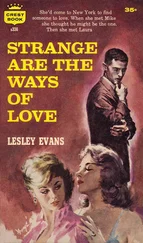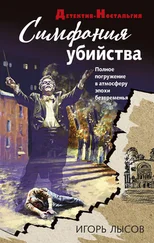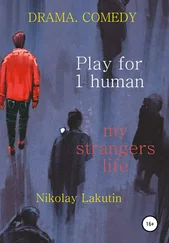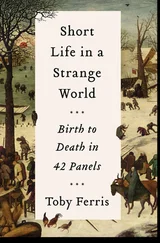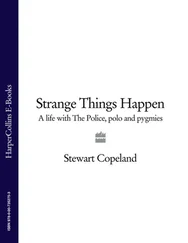Douglas Hofstadter - I Am a Strange Loop
Здесь есть возможность читать онлайн «Douglas Hofstadter - I Am a Strange Loop» весь текст электронной книги совершенно бесплатно (целиком полную версию без сокращений). В некоторых случаях можно слушать аудио, скачать через торрент в формате fb2 и присутствует краткое содержание. Жанр: Прочая документальная литература, на английском языке. Описание произведения, (предисловие) а так же отзывы посетителей доступны на портале библиотеки ЛибКат.
- Название:I Am a Strange Loop
- Автор:
- Жанр:
- Год:неизвестен
- ISBN:нет данных
- Рейтинг книги:4 / 5. Голосов: 1
-
Избранное:Добавить в избранное
- Отзывы:
-
Ваша оценка:
- 80
- 1
- 2
- 3
- 4
- 5
I Am a Strange Loop: краткое содержание, описание и аннотация
Предлагаем к чтению аннотацию, описание, краткое содержание или предисловие (зависит от того, что написал сам автор книги «I Am a Strange Loop»). Если вы не нашли необходимую информацию о книге — напишите в комментариях, мы постараемся отыскать её.
I Am a Strange Loop — читать онлайн бесплатно полную книгу (весь текст) целиком
Ниже представлен текст книги, разбитый по страницам. Система сохранения места последней прочитанной страницы, позволяет с удобством читать онлайн бесплатно книгу «I Am a Strange Loop», без необходимости каждый раз заново искать на чём Вы остановились. Поставьте закладку, и сможете в любой момент перейти на страницу, на которой закончили чтение.
Интервал:
Закладка:
Hennie, Fred. Introduction to Computability. Reading, Mass.: Addison-Wesley, 1977.
Hoffmann, Banesh. Albert Einstein, Creator and Rebel. New York: Viking, 1972.
Hofstadter, Douglas R. Gödel, Escher, Bach: an Eternal Golden Braid. New York: Basic Books, 1979. (Twentieth-anniversary edition published in 1999.)
— — — . “Analogies and Metaphors to Explain Gödel’s Theorem”. The Two-Year College Mathematics Journal, Vol. 13, No. 2 (March 1982), pp. 98–114.
— — — . Metamagical Themas: Questing for the Essence of Mind and Pattern. New York: Basic Books, 1985.
— — — . Le Ton beau de Marot: In Praise of the Music of Language. New York: Basic Books, 1997.
— — — . “Analogy as the Core of Cognition”. Epilogue to D. Gentner, K. Holyoak, and B. Kokinov (eds.), The Analogical Mind. Cambridge, Mass.: MIT Press, 2001.
— — — . “Mystery, Classicism, Elegance: an Endless Chase after Magic”. In D. Schattschneider and M. Emmer (eds.), M. C. Escher’s Legacy. New York: Springer, 2002.
Hofstadter, Douglas R. and Daniel C. Dennett (eds.). The Mind’s I: Fantasies and Reflections on Self and Soul. New York: Basic Books, 1981.
Hofstadter, Douglas R. and David J. Moser. “To Err Is Human; To Study Error-making Is Cognitive Science”. Michigan Quarterly Review 28, no. 2 (1989), pp. 185–215.
Hofstadter, Douglas R. and the Fluid Analogies Research Group. Fluid Concepts and Creative Analogies. New York: Basic Books, 1995.
Holland, John. Hidden Order: How Adaptation Builds Complexity. Redwood City, Calif.: Addison-Wesley, 1995.
— — — . Emergence: From Chaos to Order. Redwood City, Calif.: Addison-Wesley, 1997. Horney, Karen. Self-Analysis. New York: W. W. Norton, 1942.
— — — . Our Inner Conflicts: A Constructive Theory of Neurosis. New York: W. W. Norton, 1945. Hughes, Patrick and George Brecht. Vicious Circles and Paradoxes. New York: Doubleday, 1975.
Huneker, James. Chopin: The Man and His Music. New York: Scribner’s, 1921. (Reissued by Dover, 1966.)
Huntley, H. E. The Divine Proportion: A Study in Mathematical Beauty. New York: Dover, 1970.
Jauch, J. M. Are Quanta Real? A Galilean Dialogue. Bloomington: Indiana University Press, 1989.
Jeffrey, Richard C. Formal Logic: Its Scope and Limits. New York: McGraw-Hill, 1967.
Judson, Horace Freeland. The Eighth Day of Creation. New York: Simon & Schuster, 1979.
Kahneman, Daniel and Dale Miller. “Norm Theory: Comparing Reality to Its Alternatives”. Psychological Review 80(1986), pp. 136–153.
Kanerva, Pentti. Sparse Distributed Memory. Cambridge, Mass.: MIT Press, 1988.
Kent, Jack. Mr. Meebles. New York: Parents’ Magazine Press, 1970.
Klagsbrun, Francine. Married People: Staying Together in the Age of Divorce. New York: Bantam, 1985.
Kneebone, G. T. Mathematical Logic and the Foundations of Mathematics. New York: Van Nostrand, 1963.
Kolak, Daniel. I Am You: The Metaphysical Foundations for Global Ethics. Norwell, Mass.: Springer, 2004.
Kriegel, Uriah and Kenneth Williford (eds.). Self-Representational Approaches to Consciousness. Cambridge, Mass.: MIT Press, 2006.
Kuffler, Stephen W. and John G. Nicholls. From Neuron to Brain. Sunderland, Mass.: Sinauer Associates, 1976.
Külot, Gerd. “On Formerly Unpennable Proclamations in Prince Hyppia: Math Dramatica and Related Stageplays (I)”. Bologna Literary Review of Bologna 641(1931).
Laughlin, Robert B. A Different Universe: Reinventing Physics from the Bottom Down. New York: Basic Books, 2005.
Le Lionnais, François. Les Nombres remarquables. Paris: Hermann, 1983.
Lem, Stanislaw. The Cyberiad: Fables for the Cybernetic Age (translated by Michael Kandel). San Diego: Harcourt Brace, 1985.
Livio, Mario. The Equation that Couldn’t Be Solved. New York: Simon and Schuster, 2005.
Margolis, Howard. Patterns, Thinking, and Cognition. Chicago: University of Chicago, 1987.
Martin, Richard M. Truth and Denotation: A Study in Semantical Theory. Chicago: University of Chicago Press, 1958.
McCorduck, Pamela. Machines Who Think. San Francisco: W. H. Freeman, 1979.
Mettrie, Julien Offray de la. Man a Machine. La Salle, Illinois: Open Court, 1912.
Metzinger, Thomas. Being No One: The Self-Model Theory of Subjectivity. Cambridge, Mass.: MIT Press, 2003.
Miller, Fred D. and Nicholas D. Smith. Thought Probes: Philosophy through Science Fiction. Englewood Cliffs: Prentice-Hall, 1981.
Minsky, Marvin. The Society of Mind. New York: Simon & Schuster, 1986.
— — — . The Emotion Machine. New York: Simon & Schuster, 2006.
Monod, Jacques. Chance and Necessity. New York: Vintage Press, 1972.
Moravec, Hans. Robot: Mere Machine to Transcendent Mind. New York: Oxford University Press, 1999.
Morden, Michael. “Free will, self-causation, and strange loops”. Australasian Journal of Philosophy 68(1990), pp. 59–73.
Nagel, Ernest and James R. Newman. Gödel’s Proof. New York: New York University Press, 1958. (Revised edition, edited by Douglas R. Hofstadter, 2001.)
Neumann, John von. Theory of Self-Reproducing Automata (edited and completed by Arthur W. Burks). Urbana: University of Illinois Press, 1966.
Niven, Ivan and Herbert S. Zuckerman. An Introduction to the Theory of Numbers. New York: John Wiley & Sons, 1960.
Nørretranders, Tor. The User Illusion. New York: Viking, 1998.
Nozick, Robert. Philosophical Explanations. Cambridge, Mass.: Harvard University Press, 1981.
Pais, Abraham. Inward Bound: Of Matter and Forces in the Physical World. New York: Oxford University Press, 1986.
— — — . Niels Bohr’s Times. New York: Oxford University Press, 1991.
Parfit, Derek. Reasons and Persons. New York: Oxford University Press, 1984.
Pattee, Howard H. Hierarchy Theory: The Challenge of Complex Systems. New York: Braziller, 1973.
Peitgen, H.-O. and P. H. Richter. The Beauty of Fractals. New York: Springer, 1986.
Penfield, Wilder and Lamar Roberts. Speech and Brain-Mechanisms. Princeton: Princeton University Press, 1959.
Penrose, Roger. The Emperor’s New Mind. New York: Oxford University Press, 1989.
Perry, John (ed.). Personal Identity. Berkeley: University of California Press, 1975.
Péter, Rózsa. Recursive Functions. New York: Academic Press, 1967.
Pfeiffer, John. The Human Brain. New York: Harper Bros., 1961.
Poundstone, William. The Recursive Universe. New York: William Morrow, 1984.
Pullman, Bernard. The Atom in the History of Human Thought. New York: Oxford University Press, 1998.
Pushkin, Alexander S. Eugene Onegin: A Novel in Verse (translated by James Falen). New York: Oxford University Press, 1995.
— — — . Eugene Onegin: A Novel Versification (translated by Douglas Hofstadter). New York: Basic Books, 1999.
Quine, Willard Van Orman. The Ways of Paradox, and Other Essays. Cambridge, Mass.: Harvard University Press, 1976.
Ringle, Martin. Philosophical Perspectives in Artificial Intelligence. Atlantic Highlands: Humanities Press, 1979.
Rucker, Rudy. Infinity and the Mind. Boston: Birkhäuser, 1982.
Читать дальшеИнтервал:
Закладка:
Похожие книги на «I Am a Strange Loop»
Представляем Вашему вниманию похожие книги на «I Am a Strange Loop» списком для выбора. Мы отобрали схожую по названию и смыслу литературу в надежде предоставить читателям больше вариантов отыскать новые, интересные, ещё непрочитанные произведения.
Обсуждение, отзывы о книге «I Am a Strange Loop» и просто собственные мнения читателей. Оставьте ваши комментарии, напишите, что Вы думаете о произведении, его смысле или главных героях. Укажите что конкретно понравилось, а что нет, и почему Вы так считаете.



